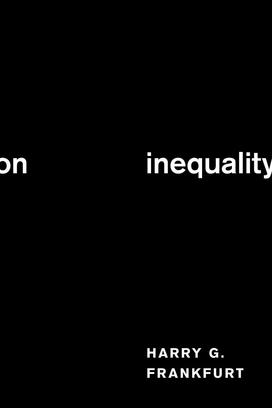
In 2005, late in his career as a philosopher, professor emeritus Harry G. Frankfurt attracted national attention for the publication of what he describes as “a book by an Ivy League professor with a transgressive title.” On Bullshit ended up selling 600,000 copies. Ten years later, Frankfurt, now 86 and living in Santa Monica, Calif., has written On Inequality, which asserts that aiming for equality distracts from our moral obligation to address poverty.
Why is inequality getting so much attention today?
The increasing gap between the affluent and those who are not affluent has become very conspicuous, and many people feel there’s a problem there to confront.
Please explain your argument.
Economic inequality — however undesirable it may be for various reasons — is not inherently a bad thing. To arrange for the members of a society to be economically equal is not in itself particularly desirable. What is bad is not inequality — it is poverty. Each person should have enough to support the pursuit of a life in which his or her own reasonable ambitions and needs may be comfortably satisfied. We are morally obligated to eliminate poverty, not achieve equality.

What are the other consequences of inequality for society?
Infrastructure, education, and research cannot be adequately funded when the wealthy control an extravagantly excessive proportion of society’s combined social product. The evil of inequality lies in the superior political influence — and other competitive advantages — enjoyed by those who are especially well off. These advantages, when they are deliberately exploited, undermine a fundamental requirement of our constitutionally mandated social order.
Over the long term, are you optimistic or pessimistic about society being able to bridge the equality gap?
I’m not very optimistic. I think if we had campaign-finance reform, that would be a step in the right direction — not of eliminating inequality, but at least of controlling the advantages it confers to certain people. But you know how difficult it is to get campaign-finance reform passed. The people in a position to do it are the very people who are enjoying an unequal competitive advantage. Anti-democratic tendencies — created by exceptional wealth — must be discouraged by legislative, regulatory, and judicial oversight.
Now that you’ve raised these questions, what responsibility, if any, do you feel to suggest solutions?
I do not, as a philosopher, consider it incumbent upon me to suggest solutions to the problems at issue.
Interview conducted and condensed by Louis Jacobson ’92











1 Response
Don Burnes ’63
9 Years AgoTreating Those in Poverty
I was fascinated by the interview with Harry Frankfurt on inequality (Life of the Mind, Nov. 11). As a 30-year researcher on the subject of homelessness, I certainly agree that extreme poverty and homelessness are a national disgrace. For example, a recent study indicated that among the bottom quintile of housing consumers nationally, i.e. those who own or rent their homes, the average annual income was $10,100, and they paid 87 percent of their income for housing, leaving just over $1,000 per year for everything else — food, clothing, health care, child care, transportation, etc. This is real poverty, and the figures do not even include those experiencing homelessness, because the latter are not actual consumers of housing.
Moreover, there is something wrong with an economic system in which high-income homeowners, who don’t need assistance, receive four times as much federal housing subsidy as do low-income renters, who do need the help. Furthermore, as Dr. Frankfurt implies, something has to be done to overhaul a political system in which 158 families contribute $78 million to political campaigns. To quote Dr. Frankfurt, “Anti-democratic tendencies — created by exceptional wealth — must be discouraged ... .” Although I have not read Dr. Frankfurt’s earlier book, On Bullshit, that title seems fitting for the way we as a nation treat those in extreme poverty and homelessness.